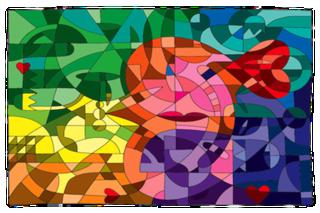Kaleidoscope!!

- Publisher: ThunderBull Entertainmen
- Genre: Entertainment
- Released: 4 Aug, 2011
- Size: 12.8 MB
- Price: FREE!
 Click here to request a review of this app
Click here to request a review of this app
- App Store Info
Description
Kaleidoscopes operate on the principle of multiple reflection, where several mirrors are together. Typically there are three rectangular lengthwise mirrors. Setting the mirrors at a 45-degree angle to each other creates eight duplicate images of the objects, six at 60°, and four at 90°. As the tube is rotated, the tumbling of the coloured objects presents varying colours and patterns. Arbitrary patterns shows up as a beautiful symmetrical pattern created by the reflections. A two-mirror kaleidoscope yields a pattern or patterns isolated against a solid black background, while the three-mirror (closed triangle) type yields a pattern that fills the entire field.For a 2D-symmetry group, a kaleidoscopic point is a point of intersection of two or more lines of reflection symmetry. In a discrete group, the angle between consecutive lines is 180°/n for an integer n≥2. At this point there are n lines of reflection symmetry, and the point is a center of n-fold rotational symmetry. See also symmetry combinations.
Modern kaleidoscopes are made of brass tubes, stained glass, wood, steel, gourds or almost any material an artist can use. The part containing objects to be viewed is called the 'object chamber' or 'object cell'. Object cells may contain almost any material. Sometimes the object cell is filled with a liquid so the items float and move through the object cell in response to a slight movement from viewer.
















